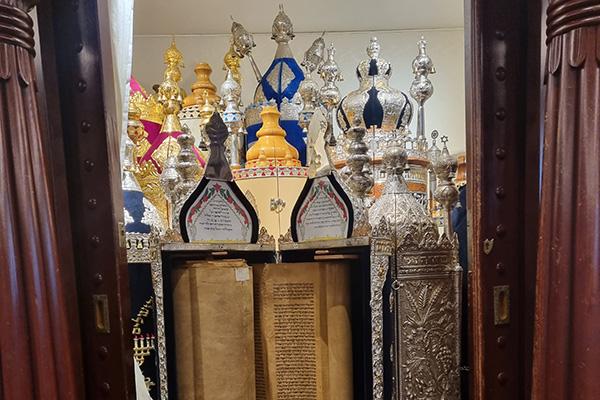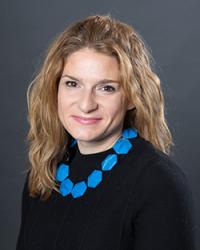
Ilana Webster-Kogen, Joe Loss Reader in Jewish Music at SOAS University of London and visiting associate professor at Yale University, presents "Disordering Mysticism, Organology, and Restitution: the Ruptured Afterlives of North African Torah Scrolls." This lecture is sponsored by the Melton Center for Jewish Studies, co-sponsored by the School of Music Ethnomusicology program, EMIC graduate student organization for the study of expressive culture, and The Ohio State University Libraries. Supported by the Diane Cummins Community Education Fund.
From the once-vibrant centers of Jewish life in North Africa, little remains of everyday religious and commercial practice. The Jews of Morocco, Algeria, Tunisia and Libya have scattered across the Mediterranean basin, carrying with them their Torah scrolls as key objects of ritual and memory that facilitate communal worship when congregations chant from them. The scroll is not an instrument precisely, but like an instrument, it is a key conduit through which communal music-making takes place in the synagogue. In the mystical traditions of Morocco (kabbalah), chanting from the Torah scroll is like standing at Sinai, re-enacting Revelation in the day-to-day. In new diasporic surroundings, North African scrolls are venerated, chanted from and collected not only by uprooted North African Jewish communities in France, but also by synagogues in the United States that have adopted the scrolls, and by museums that perceive themselves to be the guardians of a lost culture. This presentation considers the practice of collecting Torah scrolls from North Africa, describing the synagogues in France that use them, the synagogues in North America that “look after” them, and the non-Jewish institutions, including Arab states, that collect and display them as part of a national patrimony or religious ideology. Centering the mystical practices that ascribe them near-magical powers, we consider North African Torah scrolls through the lens of heritage and belonging, and of organology and its categoric limitations. Exploring instances in which scrolls from Morocco have been collected by Protestant seminaries; scrolls from Libya have been trafficked as loot; and scrolls from Algeria are held in synagogues in Europe as a hopeful reminder of Jewish life in the Arab world, we argue that the practice of collecting Torah scrolls challenges the boundaries both of organology (what an instrument is) and heritage (the objective of restitution).

Ilana Webster-Kogen is the Joe Loss Reader in Jewish Music at SOAS University of London and a visiting associate professor at Yale University. She is author of the award-winning book Citizen Azmari: Making Ethiopian Music in Tel Aviv (Wesleyan University Press, 2018), and has published articles about the Ethiopian diaspora and Palestinian listening publics. She is spending 2023–2024 at Yale’s Institute for Sacred Music completing her second book, entitled Traders, Chanters and Mystics: the Networked Afterlives of North African Torah Scrolls.
This lecture is free and open to the public. No ticket required.

Lectures in Musicology is co-sponsored by The Ohio State University Libraries.
- Lectures are held Mondays at 4 p.m. in the 18th Avenue Library, 175 W. 18th Ave. (Music/Dance Library, second floor, room 205), unless otherwise noted. These events are free and open to the public. Campus visitors, please use either the Tuttle Park Place Garage or the Ohio Union South Garage. All other garages in the vicinity of the 18th Ave. Library are closed to visitors before 4 p.m.
Driving and Parking Instructions
All events are subject to change.
